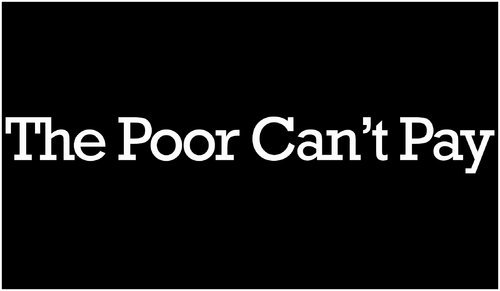Invest a little in deprived children and save a fortune on super-prison
Published: Monday, October 18, 2010
HOMELESSNESS. Poverty. Hunger. Cold. Fear. Isolation. Illness - both physical and mental.
These are features of modern Ireland, whether we like it or not. They are symptoms - the most telling symptoms - of our failure to take advantage of a 15 years of rapid economic growth. We built roads around the communities where poverty is most embedded and that enabled us to turn an unseeing eye to the inter-generational poverty inside. Instead of dealing with poverty, we created drive-by poverty.
And now we're seeing the re-emergence of the cancerous growth of extortionate money-lending. Families are borrowing from shadowy figures, at totally unsustainable interest rates, to feed their children and keep them warm. Some of these are families that a year or so ago hadn't a care in the world, but have been devastated by sudden unemployment and mounting debt - usually mortgage and credit card debt.
We saw this coming, of course, but like a lot of other things, we did nothing about it. And it will cost an arm and a leg to rescue some of these families, assuming we can even find them. Because lives of quiet and invisible desperation are becoming the norm.
Children, of course, suffer along with everyone else. We're still waiting for the official figures of the number of children who live in consistent poverty in Ireland - they're normally published around this time of year. But in Barnardos we reckon that around one in nine of our children falls into that category.
And that's quite a category, isn't it, for a country that has seen so much wealth and consumer excitement in recent years? A couple of years ago, the biggest problem facing a lot of children was how to afford the same designer labels that other kids have. Now we work with children who don't have enough protein in their diet. As the weather turns colder and wetter, they won't have the right clothes or shoes to wear. They will be much more likely to have a heavy cold this winter - and thus to miss a lot of school. That's precisely what consistent poverty means.
And they will have to depend on someone other than their parents if they are to have a Christmas worth remembering for the right reasons.
These are Irish children we're talking about. Not the children of a third world country, or a country that has been hit by some natural disaster. As Peter McVerry said at the weekend, these are children who have been sent out to live at the margins of our society and our economy. Parents are to blame, I'm often told. Parents who don't care, or are too wrapped up in their own lives or problems.
Maybe that's true. But in the years I've been doing what I do, I've never actually met a parent who didn't love his or her children. But I've met a lot of parents who can't, or don't know how to, translate that love into effective parenting.
I've met parents whose own lives are out of control, who are trying to be parents while coping with depression or addiction. Or sometimes, just trying to cope with the grinding effects of never having enough money to be able to pay their way. And sometimes people snap under that sort of strain.
Peter McVerry also said at the weekend that "it's those at the bottom of society, those who only received the crumbs from the Celtic Tiger, are the ones  bearing the brunt of the cutbacks".
bearing the brunt of the cutbacks".
I'm wondering how often they were mentioned when Department of Finance officials sat down with the opposition parties yesterday, or how high they will be on the agenda when the Taoiseach and opposition leaders sit down in the comfortable surroundings of Government Buildings later in the week.
The Poor Can't Pay Campaign, the latest phase of which was launched yesterday in Dublin, is fighting to get children and elderly people, and people with disabilities, at least onto the agenda.
Susan McKay, who launched the campaign, made the point that many of the people who played a big part in causing this crisis have been pretty well shielded from the consequences. We have a state bank guarantee. We have the Croke Park agreement which protects public servants from further income cuts. It's only those at the bottom who have no guarantees at all.
Throughout Ireland, countless organisations like ourselves, who work directly with people whose needs are growing ever more pressing, are trying to gear up to meet those needs. You'll see lots of evidence in coming months of more and more fundraising efforts and, hopefully, you'll be able to respond to them.
To read the full article click here
This story appeared in the printed version of the Irish Examiner Tuesday, October 19, 2010
P.S - You will be redirected to an external site. NWCI accepts no liability for advertising or links to external, or third party websites. Links do not imply any endorsement, and we do not give any representation regarding the quality, safety, suitability, or reliability of any advertising links or images. We are not responsible for content on external sites, embedded content, or frames
